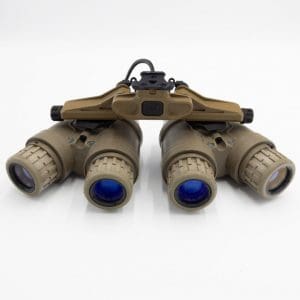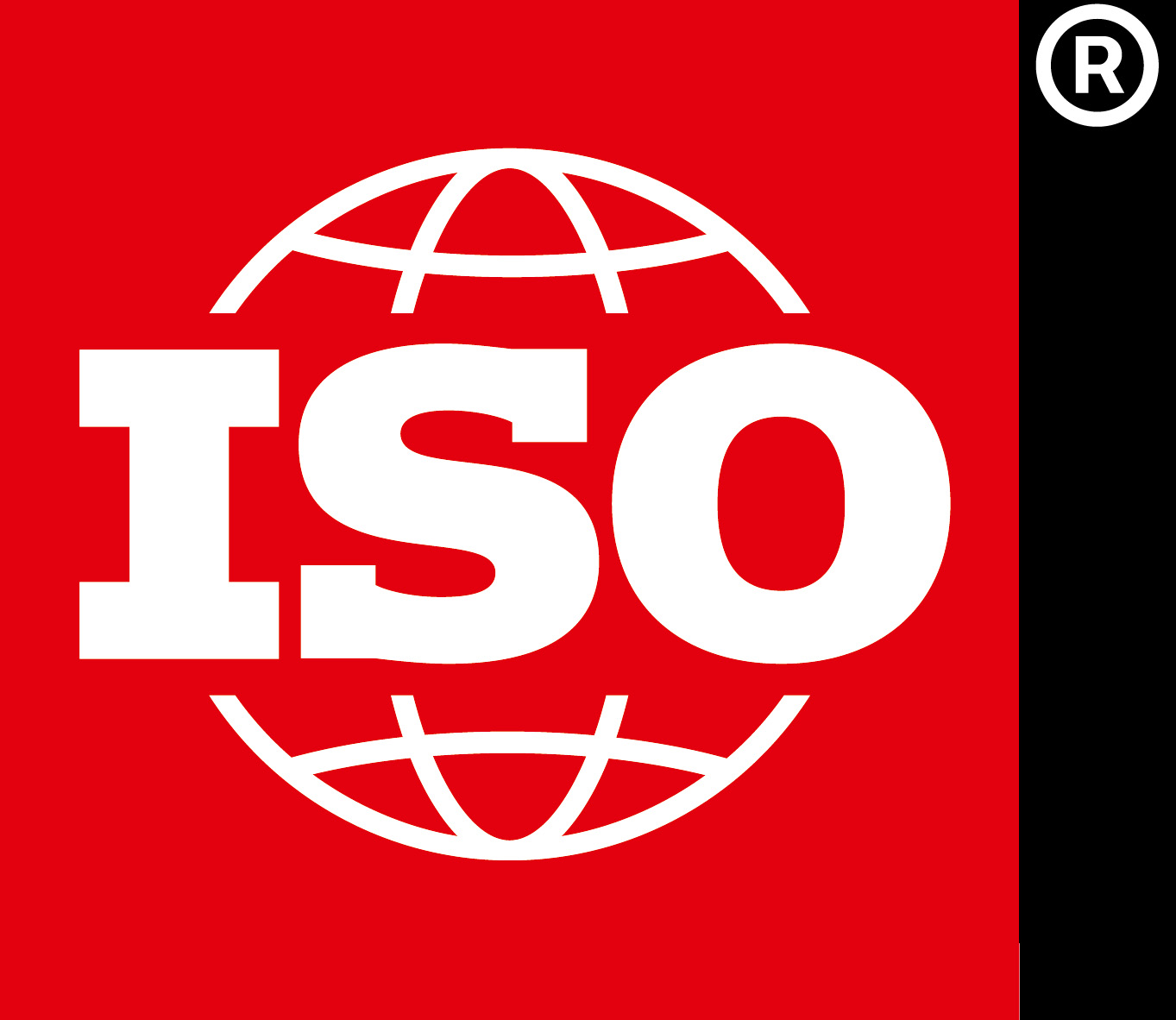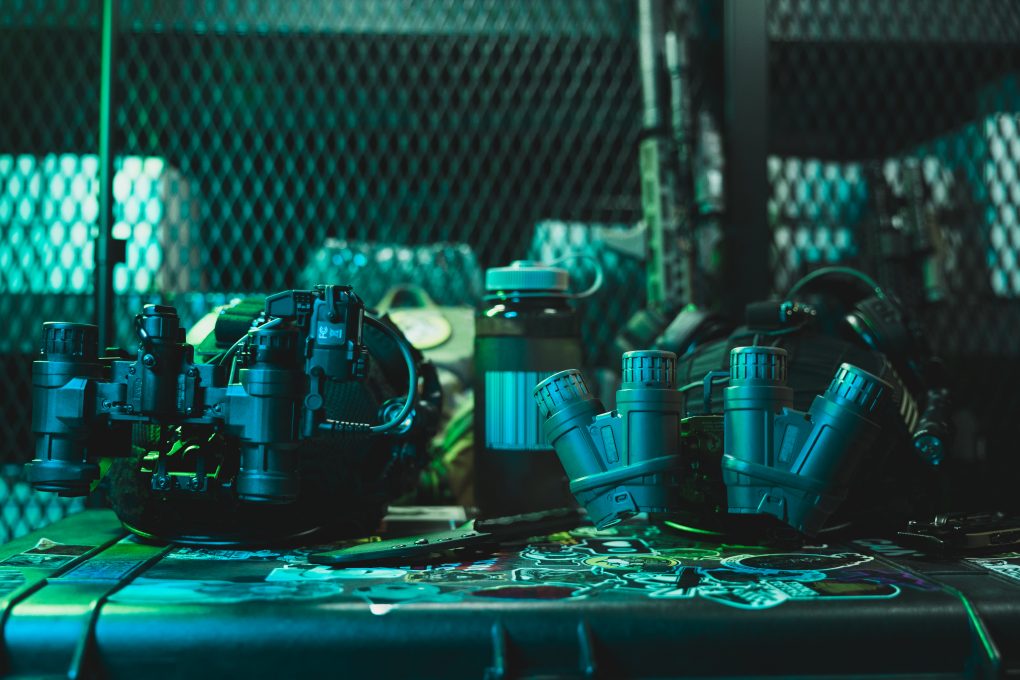Below are short, to-the-point descriptions of the various housings we offer here at Steele Industries! If you ever have additional questions or need more information, feel free to reach out to us via phone, email, or our live chat!
PVS-14
With its endless modularity and accessory compatibility, the de facto “AR-15” of the night vision world is the PVS-14, the most widely used monocular night vision device. With manual gain control and an onboard IR illuminator, the PVS-14 is feature-packed for the user looking for a “do it all” monocular. The polymer construction keeps the unit lightweight while offering superb durability and impact protection. To helmet mount the PVS-14, one will need a helmet mount, such as a G24, and a j-arm (AX14, MAX14, Wilcox J-Arm, etc).
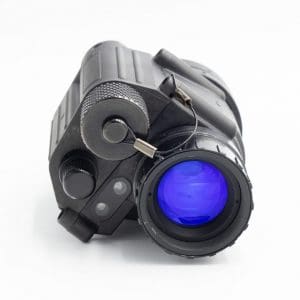
Tanto
A minimalistic approach to the PVS-14, the Tanto drops the manual gain function and on-board IR illuminator in favor of weight savings and simplicity. Compatible with many standard PVS-14 accessories such as sac lenses, demist shields, and j-arms, the Tanto will be easy to configure to the user’s specific needs. One innovative feature of the Tanto is that two units can be mounted onto a proprietary bridge known as the Daisho. This allows the user to start with a single unit and add another later without the weight penalties associated with dual PVS-14s—instead, the dual Tantos and Daisho bridge form what is very close to a dedicated binocular system. As a bonus, Nocturn offers a LIFETIME no-questions-asked warranty.
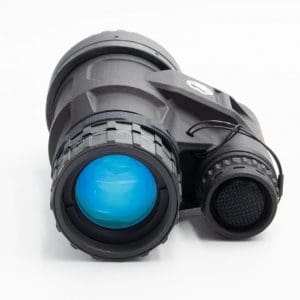
RVM-14
AB Night Vision is known for its rugged housing designs. The RVM-14 is no different. For users who like the features of the PVS-14 but want bomb-proof construction, this is the housing we recommend. Constructed of 7075 aluminum, the RVM-14 can take whatever you throw its way. It cannot only accept traditional j-arms but also utilize its own proprietary arm and bridge design. Manual gain control and an onboard IR illuminator come standard. Some would say it’s the PVS-14 of the 21st century.
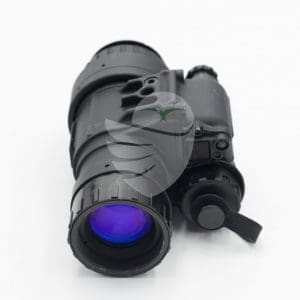
Nighthawk
When we began designing our housing, we ensured no feature was overlooked. The Nighthawk has every feature you could ask for in a robust, relatively lightweight package. The 7075 aluminum construction gives you peace of mind when operating in harsh conditions that may subject the unit to drops, bumps, and other issues. With articulation, manual gain control, onboard IR illuminator, auxiliary power port, IPD stops, and independent pod shutoff, the Nighthawk is a no-compromise solution.
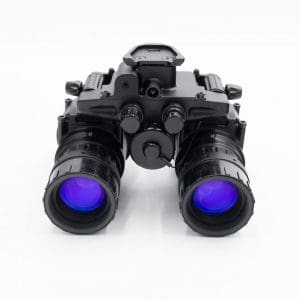
DTNVS-MG
Following in the footsteps of the successful legacy DTNVS, the DTNVS-MG retains all of the features from its predecessor that users love while adding manual gain control. The skeletonized polymer construction offers a durable, lightweight package. With articulation and independent pod shutoff as standard features, the unit can also be equipped with IPD stops via an OEM bolt-on kit. If running a battery pack is necessary, an aftermarket solution offers just that capability.
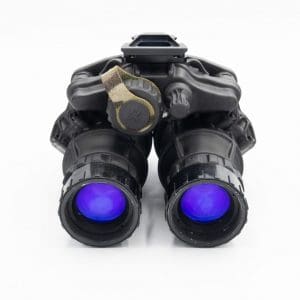
RNVG
AB’s flagship model, the RNVG, is a 7075 aluminum fixed bridge binocular system that set the industry standard for ruggedness. It’s simple yet bombproof for users whose most significant concern is durability in the field. The housing features an onboard IR illuminator and an auxiliary power port. This housing is very popular with those that have extensive experience with the ANVIS series of binoculars as it closely resembles the AVS-6/9 with the added benefit of the modern dovetail mounting interface and ruggedness.
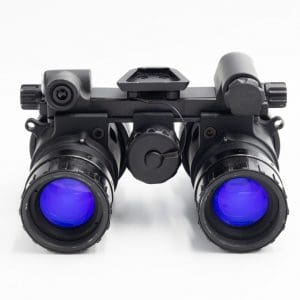
RPNVG
If a 40° field of view doesn’t cut it, the RPNVG is what you seek. This panning housing is a follow-on to the successful RNVG, adding the ability to adjust from 40° to 65° and anywhere between. This is accomplished without giving up features such as the onboard IR illuminator and auxiliary power port that were initially seen in the RNVG as well. The wide field of view is handy while driving, hiking, or during CQB. With the optional power pod adapters, each pod of the RPNVG can even be removed and used as standalone monoculars, a real force multiplier.
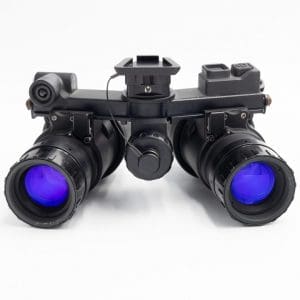
RNVG-A
The latest binocular housing from AB, the RNVG-A, was the first solution for those who desired an articulating housing without sacrificing extreme durability, a common compromise in the past. The RNVG-A is machined from 7075 aluminum and includes independent pod shutoff, an onboard IR illuminator, and an auxiliary power port.
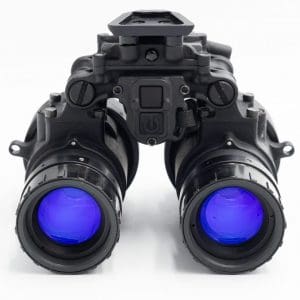
Katana
The Katana was Nocturn Industries’ first offering to the night vision market. Like their Tanto monocular, the Katana is a minimalist approach to housing design. It features a polymer construction, articulation, IPD stops, and independent pod shutoff. If you need to utilize a remote battery pack, Nocturn offers a variant with a LEMO port. If you’re looking for a simple, minimalistic, and lightweight binocular housing, look no further. To make it even better, Nocturn stands behind their housing, offering a LIFETIME no-questions-asked warranty.
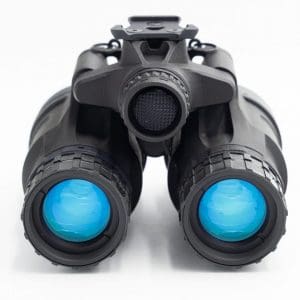
Manticore-R
One of Nocturn Industries’ latest housings, the Manticore-R (Ruggedized), is a true jack of all trades. When designing this housing, the engineers at Nocturn left no stone unturned, giving this binocular a full suite of features, including 7075 aluminum construction, articulation, manual gain control, IPD stops, individual pod shutoff, onboard IR illuminator, and auxiliary power port. If you somehow manage to break this tank of a housing, worry not, as Nocturn offers a LIFETIME no-questions-asked warranty.
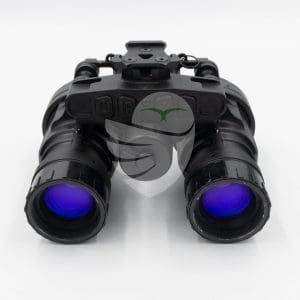
Vyper
Very similar to the Katana, the Vyper is a minimalistic housing that provides the user with a lightweight, articulating, and durable solution. The Vyper is a factory-built Photonis system featuring their state-of-the-art image intensifiers, which provide excellent performance for the money. It features a highly impact-resistant polymer construction, and IPD stops. The housing is compatible with any standard 10160 format image tube, should the user ever need to upgrade, especially as Photonis image tubes continue to evolve.
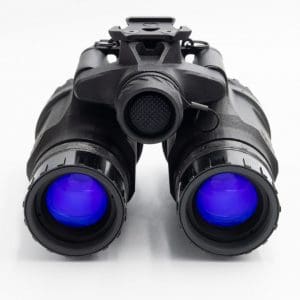
F5032
Factory-built by Elbit Systems, the F5032 is a durable, lightweight system developed for the modern battlefield. Adopted as the PVS-31D by the United States Marine Corps, the binocular will serve for decades to come on the frontlines. The F5032 is injection molded and features articulation, manual gain control, IPD stops, independent pod shutoff, and an auxiliary power port. The unit utilizes Elbit’s latest thin-filmed white phosphor image intensifier tubes, which provide excellent performance in low-light conditions.
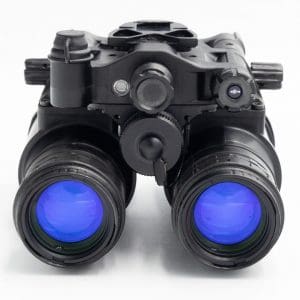
PVS-31A
The current issue goggle for the United States Special Operations Command, the PVS-31A by L3Harris, was built from the ground up to be the lightest goggle available while still offering key features such as articulation, manual gain control, IPD stops, and an auxiliary power port. The unit includes a remote battery pack and cable, alleviating the need to purchase one separately. The binocular utilizes RPO lenses, which provide an extremely sharp image, especially when paired with the unit’s L3Harris unfilmed white phosphor image intensifier tubes. Regarded by many as the ultimate binocular system, the PVS-31A is for the user who flat-out needs the best.
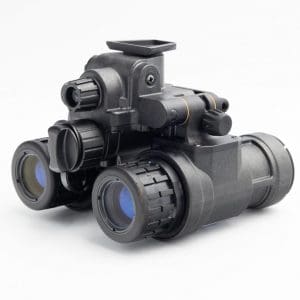
BNVD-1531
The BNVD-1531 by L3Harris is for the user who likes the feature set of the PVS-31A but requires adjustable diopters or an onboard illuminator. The unit utilizes mil-spec PVS-14 optics, allowing users to use several aftermarket accessories. Like the PVS-31A, the BNVD-1531 includes a remote battery pack and cable, greatly extending the potential run time of the device. The unit’s low light performance is unmatched due to its unfilmed white phosphor image intensifier tubes. The BNVD-1531 contains nearly every feature one could hope for, putting this device into a league of its own.
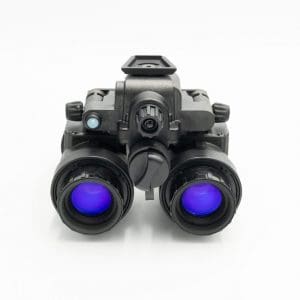
GPNVG
The holy grail of night vision devices, the GPNVG features four L3Harris unfilmed white phosphor image intensifier tubes and a unique set of eyepieces, giving the device an extraordinary 97° field of view. This extra field of view, more than double that of traditional night vision devices, is convenient while driving, hiking, and shooting. The unit includes a remote battery pack and cable, which serves as the unit’s sole source of power. RPO lenses offer a crisp image in all lighting conditions. There is no doubt if your budget allows, the GPNVG is sure to impress every time you power it on.
